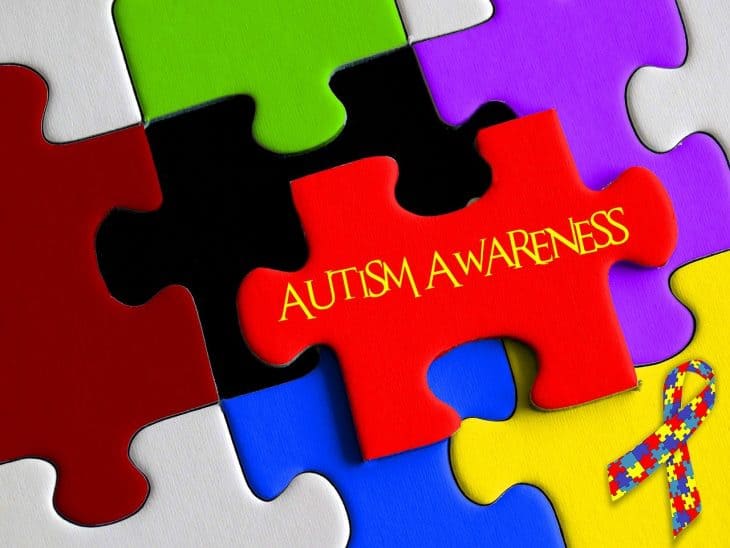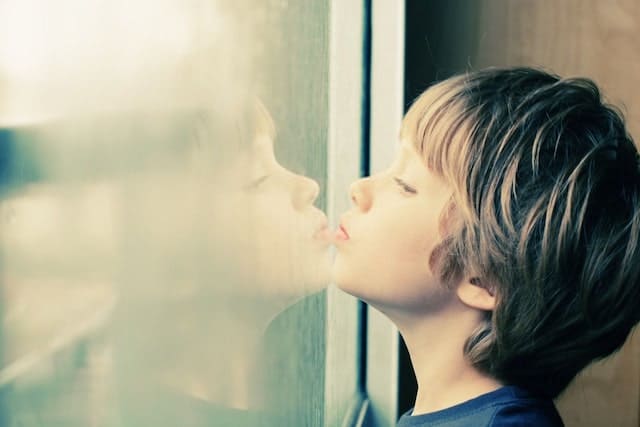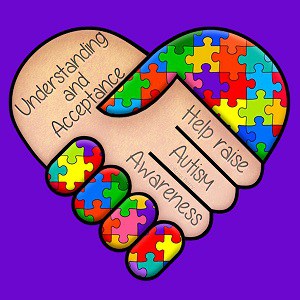
- Definition: Neurodevelopmental illness
- Traits: Impaired social interplay, verbal and non-verbal communication
- Prognosis: Within the first 2 years of a baby’s life
- Statistics: About 1 in sixty eight kids inside the US has autism spectrum defect (ASD)
- Statistics: 21.7 million individuals with autism globally as of 2013
- Gender: ASD is nearly 5 instances extra frequent amongst boys
- Intelligence: forty six% of kids with ASD have common to above common mental potential
- Comorbidity: 10% of kids with ASD have Down syndrome, fragile X syndrome
- Well-known: Wolfgang Amadeus Mozart, Dan Aykroyd, Susan Boyle, Tim Burton
- Films: Rain Man, Mercury Rising, My Title Is Khan
- Signs: Impaired Social Interplay Is Hallmark Functions of Autism
- Causes: We Don’t Know Precisely What Causes Autism
- Causes: Specific Situations throughout Being pregnant Can Improve Danger of Autism
- Causes: There Are Many Regarded Threat Elements Related to the Onset of Autism
- Hereditary: Inheritance Does Play an Necessary Position When It Involves Onset of Autism
- Signs and symptoms: Autism Can Typically Go Unrecognized for Years
- Varieties: Autism Is Simply Issues of the Autism Spectrum
- Signs and symptoms: For Many Sufferers, Signs and symptoms of Autism Do Enhance over Time
- Remedy: There Is No Remedy for Autism, however There Are Particular Remedies
- Records: Autism-Like Circumstances Had been First Documented inside the sixteenth Century
- Caring for a Baby with Autism might be High priced for Dad and mom
- Autism Is a Vast-Spectrum Defect
- Empathy Is Not Some thing That Comes Naturally for Individuals with Autism
- These Who Go through from Autism In many instances Have Issues with Bodily Contacts
- Loud Noises, Particular Smells and Lights Are Not Nice for Individuals with Autism
- In Greater Extreme Instances of Autism, Speech Could Additionally be Impaired
- Repetitive Behaviors Are Most Broadly Regarded Indicators of Autism
- Many Myths about Autism Aren’t True
- Being round Animals Might Assist Cut down Social Nervousness in Kids with Autism
- Many Kids with Autism Additionally Have Digestive Issues
Impaired Social Interaction Is One of the Hallmark Features of Autism

One of the most important autism facts reveals that impaired social interaction is often the main sign of autism in children. Autism spectrum disorder (ASD) by definition includes various disorders, all of which usually present in early childhood through children’s (or babies’) unresponsiveness to people.
There are also children with ASD who appear to develop normally at first, but later show issues with normal social behavior. Children with ASD sometimes don’t respond to their names, avoid eye contact with others, don’t understand the feelings or facial expressions of others, lack empathy, don’t know how to play with other children, or often engage in repetitive movement (rocking, twirling, banging).
We Don’t Know Exactly What Causes Autism
Although humanity has come a long way in the journey towards understanding autism and similar disorders in recent decades, autism facts reveal that we are still not certain about what causes autism spectrum disorder. Genetic and environmental factors both likely play a role in developing the disorder, and some research findings show that certain abnormalities develop as early as in fetal stage. In the past, the theory of inappropriate parental practices in early childhood causing ASD was also popular, but it has been long disproved.
Certain Conditions during Pregnancy Can Increase Risk of Autism
Autism facts reveal that two otherwise pretty harmless health conditions can severely increase the risk of autism. If a pregnant mother gets the flu or has a fever than lasts for more than one week, the chances of her child being diagnosed with an ASD by the age of 3 greatly increase. Danish researchers have established that influenza during pregnancy doubles the risk for the child, and a persistent fever (lasting one week or more) triples the risk.
But future mothers should not be too alarmed; despite the doubled or tripled risk, the chances of a child developing an ASD due to these conditions is still fairly small. Out of all women that participated in the study and got ill during their pregnancy, 98% gave birth to perfectly healthy children.
There Are Many Known Risk Factors Connected to the Onset of Autism
One is age of parents, although the mother’s age has a lesser impact than the father’s age. The older the future father is during conception, the greater the risk of autism developing in the baby, since older men have a greater chance of passing new mutations to babies. Babies who are born prematurely or have a low birth weight are also at greater risk of having ASD, and so are babies who have other genetic or chromosomal conditions, such as Down syndrome, tuberos sclerosis, fragile X syndrome and others.
Researchers from the University of Southern California and the Children’s Hospital Los Angeles found a connection between air pollution that is caused by traffic, and autism in children, claiming that pregnant mothers who are frequently exposed to air traffic pollution during their pregnancy carry a greater risk of giving birth to a baby with autism.
Inheritance Does Play an Important Role When It Comes to Onset of Autism
Thanks to the research of human genes, autism facts can offer at least a partial explanation of why parents play an important role when it comes to the onset of autism. Genes AKT3, PIK3R2 and PIK3CA have been linked to the development of autism and some other diseases. Parents who have bipolar disorder or schizophrenia are also more likely to have children with autism.
If parents have one child with autism, there is about a 5% risk that other children will have the condition too. Except when talking about twins, of course – if one is affected, there is a 90% chance the other is too.
Autism Can Sometimes Go Unrecognized for Years
Autism spectrum disorder is a medical condition that is sometimes difficult to diagnose. As a consequence of that, autism in children can go unrecognized for quite some time in some cases.
The diagnosis must always be made by a medical professional, of course, but parents can look for signs such as: no babbling or pointing by age 1, no single words spoken by 16 months or two-word phrases by age 2, no response to own name, hesitant eye contact and no smiling. These are the signs that may hint at autism at an early age; as the child grows older, there are other signs to look for: the inability to make friends with peers, conversational issues, repetitive use of language, focused interest that is limited to very few objects or subjects, and unusual attachment to specific routines or rituals.
Autism Is Just One of the Disorders of the Autism Spectrum
Autism spectrum disorder (ASD) is not equal to autism; autism is only one form (the most severe) of such disorders, with others being Asperger syndrome, pervasive developmental disorder not otherwise specified (PDD-NOS), and childhood disintegrative disorder. What are the differences between the four?
Autism in the most severe form and is typically connected to all symptoms of the spectrum. Children who show only a few symptoms (not enough for the experts to classify them as autistic) are usually diagnosed with PDD-NOS, and children who are marked by typical autistic behavior, but have well-developed language skills, are diagnosed with Asperger syndrome. Childhood disintegrative disorder is quite rare and is diagnosed later in a child’s life (typically between the ages of 3 and 10), when their otherwise normal development suddenly deteriorates, showing typical autistic behaviors.
For Many Patients, Symptoms of Autism Do Improve over Time
When the diagnosis of autism or ASD is made in a child, the symptoms are usually pretty severe and are additionally perceived as very intense by the shocked parents. But autism facts reveal a simple truth that, for a lot of children with autism, symptoms greatly improve over time, allowing the children to grow up into adults who live almost completely normal lives. It is true that most people with ASD need support and certain services throughout their lives, but inside that supportive frame, many live very independent lives.
There Is No Cure for Autism, but There Are Certain Treatments
Autism facts reveal that there is no cure for autism, but this doesn’t mean that nothing can be done to ease the symptoms associated with the condition. Autism may not be curable, but it is definitely treatable in the form of therapies and behavioral interventions, sometimes even medications. The best treatments are designed according to the individual needs of each autistic child, but most medical experts agree that the earlier they start, the better the end result is likely to be.
These behavioral interventions and therapies are carried out by highly-skilled professionals and aim at helping children with autism to develop social and language skills. Parents and other family members usually also go through special counseling that teaches them how to support the development of their autistic family member. Certain symptoms, such as anxiety, depression or OCD, can be also treated with medications; anticonvulsant drugs can help ease seizures; and medications that are used to treat people with attention deficit disorder can be used to help decrease hyperactivity or extreme impulsivity.
As with any other medical condition, various alternative methods for treating autism also exist. A special diet is one such example and can certainly help some children with the condition, but more scientific research needs to be done in the field for any conclusive result.
Autism-Like Conditions Were First Documented in the 16th Century
Autism is not a newly developed condition, and autism facts show that it has been among us for centuries, if not even longer. Autism was present long before we were able to recognize, diagnose and name it in the 20th century – the first documented cases of autism were in the 16th century.
The collection of sayings of Martin Luther, the famous German Protestant, includes a story of a 12-year-old who might have been autistic. Luther described the boy as a soulless mass of flesh, perhaps obsessed with the devil. Other notable reports on autism from history include a man named Hugh Blair of Borgue, whose brother successfully annulled his marriage at court to gain his inheritance, since Hugh frequently exhibited strange behavior, and a feral child, named the Wild Boy of Aveyron, who was caught in 1789 and showed several signs of autism.
Caring for a Child with Autism can be Expensive for Parents
Living with children who have autism does not only pose a severe emotional challenge for parents, but can also be quite a big financial burden. It is estimated that the care for a child with ASD costs at least $17,000 more each year than the care for a child without the condition. With children with severe forms of ASD, the financial cost might be even higher.
The costs associated with autism include health care, special education, therapies, family-coordinated services and, of course, also time. The average medical costs for children with ASD are higher than $10,000 (about 6 times higher than for children without the condition), and intensive behavioral interventions can cost up to $50,000 per year.
Autism Is a Wide-Spectrum Disorder
According to autism facts, this condition, alongside the other three similar conditions that are included in the autism spectrum disorder, is considered to be a wide-spectrum disorder, which means that no two people with the condition will exhibit the exact same symptoms. Various combinations of possible symptoms are further complicated by the symptoms being expressed in mild or severe forms, which is one of the main reasons that the diagnosis of ASD is sometimes difficult and that there is no typical profile for people with autism.
Empathy Is Not Something That Comes Naturally for People with Autism
People with autism find it much more difficult to understand what other people feel. Empathy skills are weaker in some autism cases, and stronger in others, but in general autism and empathy don’t go hand-in-hand.
Frequent efforts of caregivers to teach those who have autism empathy sometimes show results, and a part of their empathy becomes a natural rather than just a learned response. But it is never quite the same as in most of us – conversations with people with autism often feel like a one-way ticket, since those affected rarely show interest for anyone but themselves and thus almost always talk just about themselves.
Those Who Suffer from Autism Often Have Problems with Physical Contacts
Physical contact is another area of everyday life where people with ASD usually behave very different than most of us. Children with the condition often do not like being touched or cuddled, but some have the ability to enjoy physical contact with close relatives. The main problem with physical contact in people with autism is often that they don’t anticipate it, so they respond to it in either an exaggerated way or don’t react at all, causing confusion to those who are not aware of, or do not fully understand, their condition.
Loud Noises, Certain Smells and Lights Are Not Pleasant for People with Autism

Many of us don’t like surprising loud noises, certain smells or even lights, but autism facts reveal that people with autism often exhibit an even greater dislike of such stimuli. Similar to physical contact in people with autism, the main problem is not the stimuli themselves – it is rather a problem of not anticipating something and consequently not being able to cope with it. Those who take care of people with the condition thus often alarm them in advance if some major change in the environment is about to happen.
In More Severe Cases of Autism, Speech May Also be Impaired
Although people with autism show a clear lack of language development in childhood, most of them talk fairly well in later years, especially if they are encouraged to do so by regular therapy. But more severe cases of autism also present with heavy speech impairment or the inability (or reluctance) to speak at all.
Typical speech impairments of those who have autism include echolalia, the tendency to repeat words or phrases they hear, flat and overly-formal intonation, and woody formulation of sentences.
Repetitive Behaviors Are One of the Most Widely Known Signs of Autism
What other people usually notice first when dealing with someone with autism are repetitive behaviors – both physical and verbal – that sometimes seem very strange to the rest of us. The simple truth is that people with autism like predictability and routine, so they often stick to motions or words that give them comfort. For example, some people with autism like to walk from one side of the room to the other and back continuously, repeat the same sequence of actions at a certain point in the day (like always sticking to the routine of using the toilet first, then brushing teeth, brushing hair and only later getting dressed in the mornings) or drawing the same picture over and over again.
Many Myths about Autism Aren’t True
Autism facts reveal that there are quite a lot of myths concerning autism, but most of them simply aren’t true. For example, a lot of people who have no clue about autism believe that people with autism have no feelings, due to their lack of empathy and social skills, but the truth is that people with autism feel happiness, sadness, love or hate just like we do – they just express it in a different way.
Another popular myth is that all people with autism are highly intelligent or skilled in certain areas like math or music, creating a mythical profile of people with the condition: strange, but genius. In reality, only some people with autism are savants who possess an incredible skill in a highly-specialized area, although it is certainly true that high intellect is quite common in people with autism.
Being around Animals May Help Reduce Social Anxiety in Children with Autism

Recent studies show that being around animals may be a very efficient therapy for children with autism as it relieves their social anxiety. It is quite usual for children with autism to feel unhappy or confused in the company of others, but apparently only when these others are humans. If people with autism spend time with animals, such as dogs, cats or guinea pigs, they don’t exhibit their usual anxiety. This can be explained by animals offering something we people only rarely do – unqualified love and acceptance.
Many Children with Autism Also Have Digestive Problems
Autism facts also reveal that children with autism frequently suffer from digestive problems. These include usual problems that we all face from time to time, but also unusual problems such as the tendency to eat things that are not food – things like paper or dirt. These unusual eating habits are quite common actually – according to some studies, they appear in every 3 in 10 children with autism.
Gluten-free diets and diets rich in B6 supplements or magnesium are often implemented by caregivers of autistic children due to frequent digestive problems, but their effects have not been scientifically confirmed yet.
Autism Facts — Facts about Autism Summary
 Autism is a neurodevelopmental disorder that usually exhibits itself in the first few years of a child’s life. Common symptoms include impaired social interaction, lack of empathy, limitations in language use, reluctance over physical contact and eye contact, and a tendency to repetitive behavior. Despite several limitations, people with autism often learn to function as a normal (or almost-normal) part of society and live near-independent lives. Some people with autism also exhibit exceptional intellectual abilities or highly specialized skills without much effort. We still don’t know what exactly causes autism or autism spectrum disorders (ASD) or if it will ever be possible to cure it, but the condition is treatable by reducing a lot of unpleasant symptoms through special therapy, behavioral interventions and, in some cases, medication.
Autism is a neurodevelopmental disorder that usually exhibits itself in the first few years of a child’s life. Common symptoms include impaired social interaction, lack of empathy, limitations in language use, reluctance over physical contact and eye contact, and a tendency to repetitive behavior. Despite several limitations, people with autism often learn to function as a normal (or almost-normal) part of society and live near-independent lives. Some people with autism also exhibit exceptional intellectual abilities or highly specialized skills without much effort. We still don’t know what exactly causes autism or autism spectrum disorders (ASD) or if it will ever be possible to cure it, but the condition is treatable by reducing a lot of unpleasant symptoms through special therapy, behavioral interventions and, in some cases, medication.
Was this page helpful?
Our commitment to delivering trustworthy and engaging content is at the heart of what we do. Each fact on our site is contributed by real users like you, bringing a wealth of diverse insights and information. To ensure the highest standards of accuracy and reliability, our dedicated editors meticulously review each submission. This process guarantees that the facts we share are not only fascinating but also credible. Trust in our commitment to quality and authenticity as you explore and learn with us.
